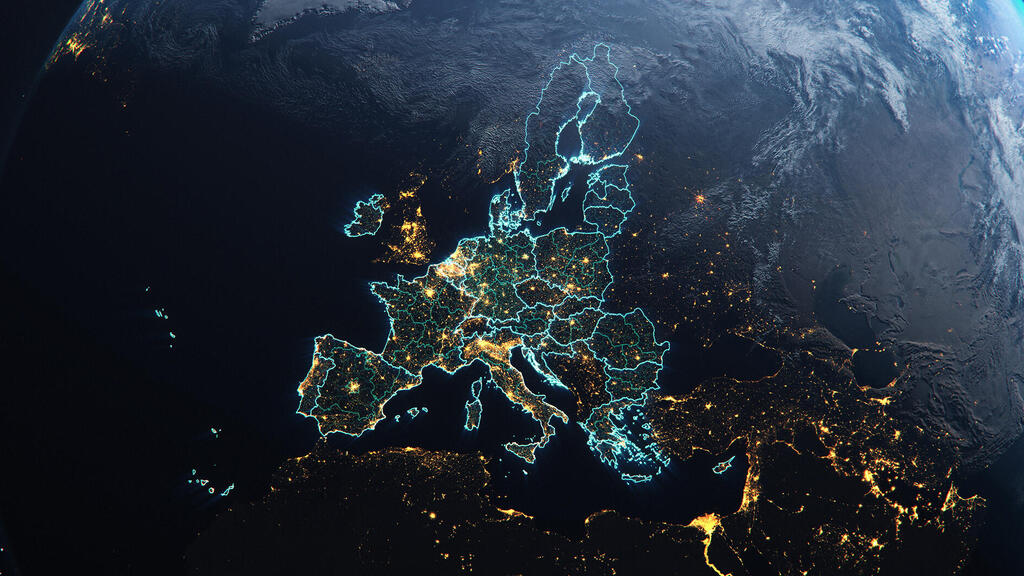
Regulatory uncertainty risks pushing Israeli AI startups away from Europe
As startups and VCs call on the EU to pause the rollout of its AI Act, concerns mount that it could unintentionally punish its closest tech allies, including Startup Nation.
A new letter drafted and distributed online has suggested that dozens of Europe’s leading startups and investors are calling for the European Union to pause the rollout of its AI Act, designed to curb the innovation efforts surrounding artificial intelligence. Concerns were raised following a letter penned by founder and former CEO of Stockholm-based healthtech Kry, Johannes Schildt, shortly after Swedish Prime Minister Ulf Kristersson demanded the bloc place a freeze by citing risks to technological progress.
The outbreak of a debate on how the continent will rollout the Act will have implications far beyond the EU. Israeli AI startups, many of which see the bloc as a promising market or R&D partner, are now facing similar concerns. With compliance costs rising and legal uncertainty mounting, Europe may be losing its shine as a launchpad for Israel's next wave of AI innovation.
The letter described the Act as “a rushed ticking time bomb” and urged the bloc to implement “a well-calibrated pause… delivering a workable implementation plan that reinforces Europe’s credibility and competitiveness on the global stage.” It has already been signed by roughly 30 signatories, including Synthesia, Lovable, and Harry Stebbings.
“It's increasingly clear that, in a global race, the way the Act has been structured will only serve as an anchor weighing down AI startups,” said Dom Hallas, executive director of Startup Coalition. “Wherever on the continent you're based, it's in the interests of both the ecosystem and our economic future to think again.” Other signatories include Voi CEO Fredrik Hjelm, Legora CEO Max Junestrand, and Judith Dada, general partner at Visionaries Club.
Another "Champion's Initiative" letter has been signed by 45 organizations including Mercedes-Benz Group AG, BNP Paribas, Deutsche Lufthansa, Publicis Groupe SA, Prosus NV, and Siemens Energy AG. It calls on the EU to suspend the implementation of the Act because they claim it puts the EU's AI ambitions at risk.
The EU AI Act officially came into force in 2024 but is being rolled out in stages over two years, with a significant part of the rules set to come into effect next month. It was designed as a comprehensive regulation measuring ‘unacceptable risk’, ‘high-risk applications’, and those ‘largely left unregulated.’ However, the letter suggests that over-regulation will place high barriers to entry into the market and leave other countries, such as Israel, avoiding the EU to expand their healthtech, fintech, or mobility ventures — all of which are deeply affected by AI regulation.
Related articles:
"We may be facing much regulatory complexity, and certainly appreciate the desire, if not need, to pause the AI Act's rollout," said Yaron Litwin, CMO of Netspark. The Israel-based company develops AI-backed content filtering and is the developer of Canopy, the Parental Control App. "While recognizing the EU's intent to set high standards, an unclear rollout of the act may lead to difficulty in companies in Israel and elsewhere scaling efficiently in Europe."
Those critical of the AI Act warn that it could repeat the mistakes of the EU’s GDPR, which (despite intentions) imposed high compliance costs and created legal complexity that hit small companies hardest. Some now worry that Europe is cementing a pattern of regulatory overreach that deters innovation from outside its borders.
Even now as debate of the AI Act rages on, one such pain point is the wording of a “code of practice” designed to establish how the rules will apply to GenAI, effectively leaving politicians unable to produce a clear definition of the technology and how to regulate it effectively. “Without a harmonised baseline, each member state will be forced to interpret and enforce divergent rules, splintering the single market and erecting costly compliance walls,” explained Alexandru Voica, head of corporate affairs and policy at Synthesia.
The strict rules within the EU have often curbed innovation and technological progress across the bloc, with plenty of memes being born online. “USA innovates, China imitates, Europe regulates,” and social media laughs along. Implementation of such clumsy measures could force ecosystems like Israel to look at other, more permissive environments like the US or even the UAE - where many Israeli AI startups already have footholds.
2025 is showing the world that competition for AI talent and investment is heating up: This year alone is projected to see significant growth, with the market size expected to reach $371.71 billion. If the EU’s regulatory stance is expected to drive a wedge between Startup Nation and traditional European partners, then it may have unintended consequences for the bloc in the future.
